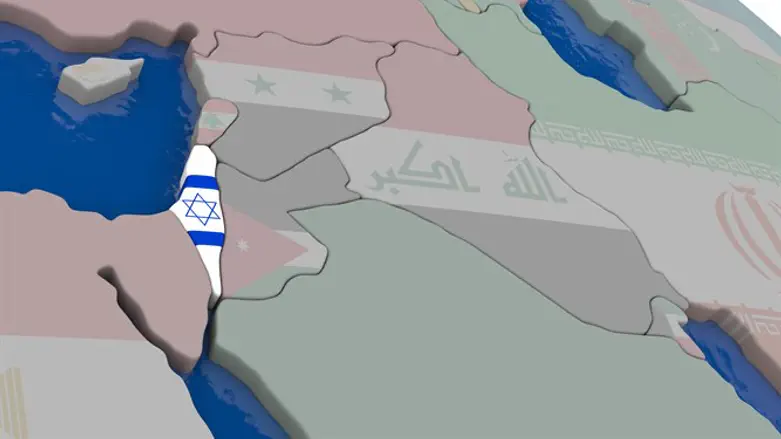
A few days before Independence Day, the Israeli left challenged Prime Minister Binyamin Netanyahu by asking him to draw the borders of the state. The Association for Civil Rights in Israel is ostensibly behind the seemingly simple demand. Arutz Sheva spoke with the director-general of the organization, attorney Sharon Avraham-Weiss.
At the outset Avraham-Weiss wished to stress that her organization is an human rights organization and its demand that the Prime Minister draw the map of the State of Israel stems from human rights considerations and not from any political reasons whatsoever.
"It needn't be a demand by the left or the right; we are a human rights organization, and as a human rights organization we think that one of the bars that needs to be set is borders for each country in order to create certainty," she says, adding that there are two principles that are indisputable: One is that defined sovereign borders are necessary for the conduct of a sovereign state, and the other is that Israel has been operating for fifty years without defined sovereign borders, "and this raises many questions, one way or the other. We therefore asked for clarification."
So far a response has not been forthcoming from the Prime Minister's Office to the intriguing inquiry that contains ramifications far beyond the drawing of a map. Asked what her organization's response would be if Netanyahu answers that the Israeli border crosses into Jordan, Avraham-Weiss replied, "It has implications, and as a human rights organization, I am not talking about solutions, but the significance to creating certainty would be clear.
"If the border passes through Jordan, then we are talking about one country, and annexation of the Green Line is then occupation, but right now we are in a situation of confusion, neither this nor that, which has implications for both the situation of the Palestinians and the situation of the settlers."
Attorney Avraham-Weiss does not accept the suggestion that their organization intends to place Netanyahu in a corner where he will have to decide on a question that has not been answered at the negotiating table. "I think that there should be certainty on this issue, that it is also in the interests of the settlers to be in a situation in which some of the legislation applies to them and some not because military rule is not an ideal situation. Either all the laws of the State of Israel apply or they do not, but certainty is needed. Every country needs an answer to the question of borders."
In her remarks, Avraham-Weiss noted that her people have not been able to find in the official records of the State of Israel a map that would be considered Israel's official map. "In 1967, Israel declared that it would control the area under humanitarian law, the so-called laws of occupation. This is a recognized and legitimate framework in the world and was intended to regulate military rule over territory occupied during war, but in practice, entire occupied areas became Israeli.
"All the settlements are Israeli islands and the settlers are under the command of the military commander and live as if they live in the State of Israel and receive services from government ministries."
She added that the State of Israel has so far refrained from legislating laws relating to Judea and Samaria except for the case of the Regulation Law, the problem of which is that it relates to an area that is not in the sovereign Israeli hands and the Palestinian residents there have no democratic ability to influence it. "We have to create certainty, today it's neither."